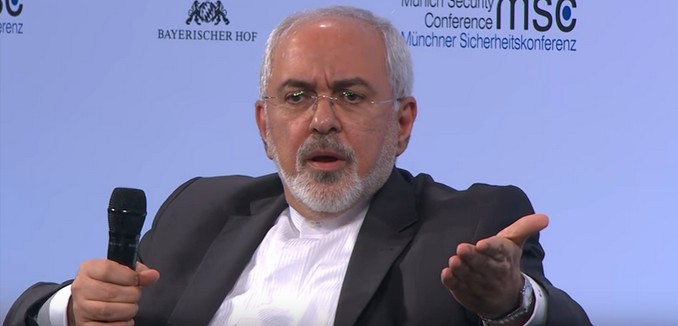Last month Iran’s Justice Minister Alireza Avaei was afforded a platform at the United Nations Human Rights Council (UNHRC) in Geneva, Switzerland. Switzerland is not a member of the European Union (EU), and Avaei is under an EU travel ban for human rights violations.
In the 1980s, Avaei, like his predecessor, Mostafa Pour-Mohammadi, the first justice minister under President Hassan Rouhani, was on a panel that pronounced death sentences on thousands of Iranians who were then summarily executed.
There were a number of critics who saw Avaei’s presence at the so-called Human Rights Council to be an affront to the concept of human rights. The United States Ambassador to the United Nations Nikki Haley expressed her opposition in typically blunt terms, “Mr. Avaei is responsible for some of the worst human rights violations in Iran, including preventing political freedoms and promoting repression, violence, and extrajudicial killings of political prisoners.”
By allowing Avaei to speak, Haley said, the council made “a mockery of its mandate to promote universal human rights.”
It’s true that the UNHRC has an awful record and perhaps nothing better could be expected from such an institution. But Iranian officials are welcomed not only at international fora, but also at prominent Western institutions and given a platform to spread their propaganda.
The problem is that Iran is a self-proclaimed revolutionary government and is opposed to Western values and norms. For institutions dedicated to preserving Western values, it makes no sense to give representatives of such governments a platform to promote their contempt.
The English writer Henry Wotton said, “An ambassador is an honest man sent abroad to lie and intrigue for the benefit of his country. Few diplomats lie with the skill or brazenness of Iran’s Foreign Minister Mohammad Javad Zarif, and yet last month he was a featured speaker at the Munich Security Conference. The conference hosts world leaders and describes itself as “the major global forum for the discussion of security policy.”
Zarif, in his talk, spoke of the instability in much of the Middle East, but to Zarif, the main causes of the instability are the United States and Israel. Without a hint of irony, Zarif claimed that stability in the Middle East could be achieved through “security networking,” which he described as “a non-zero-sum approach that accepts that security is indivisible, as opposed to alliances and blocks, which are fundamentally based on the defunct zero-sum approach of gaining security at the expense of the insecurity of others.”
This approach didn’t account for how Hezbollah effectively controls Lebanon, how Iran and its allies continue bringing death and destruction to Syria, or how Iran is slowly taking control of Iraq.
Zarif represents a regime whose political and military leaders regularly call for the destruction of Israel. It’s hard to imagine a clearer “zero-sum approach” than the destruction of another nation.
At the Munich conference, Zarif decried “the arms race in our region” as “an example of the destructive and unnecessary rivalry that has made our neighborhood unsafe and insecure.” He even hailed the 2015 nuclear deal as an example of “non-zero-sum thinking.”
But in August 2015, just after the nuclear deal was agreed to, Zarif promised Hezbollah leader, Sheikh Hassan Nasrallah, that the nuclear deal Iran reached with global powers presented “a historic opportunity” to confront Israel. In fact, a few months later Nasrallah acknowledged that all of Hezbollah’s rockets come from Iran.
The “zero-sum-approach” that Zarif cited as a way to achieve peace could have been called the “zero-Israel-approach.”
A few days later, Zarif’s deputy, Abbas Araqchi was a guest of the Chatham House in the United Kingdom. Chatham House boasts that it is one of the leading think tanks dedicated to foreign policy in the world. Though Queen Elizabeth II is Patron of Chatham House, the think tank gave its podium to a member of a regime that has seized and imprisoned a number of British nationals without even the slightest pretense of due process.
Araqchi used his platform to complain that the West doesn’t do enough to ensure that Iran receives the financial benefits from the nuclear deal. Even though Iran has been complaining that it hasn’t received the financial windfall it deserved since the deal was agreed to, Araqchi blamed Iran’s current financial straits on uncertainty generated by President Donald Trump’s threat that he would no longer waive sanctions unless weaknesses in the deal were addressed by Congress and Europe.
Iran has been found by the UN to be shipping weapons to the Houthi rebels in Yemen in violation of a Security Council resolution. This also puts Iran in violation of Resolution 2231, which implemented the nuclear deal, and which prohibits Iran from transferring weapons to other parties. To credit Aragchi’s claim of unfair treatment one must ignore Iran’s own violations of the nuclear deal and its refusal to allow inspections of its military sites.
Whether it’s Zarif or Araqchi, they are both representatives of a regime that reject the freedoms and open inquiry that are hallmarks of the Western world. Zarif used his opportunity to speak of regional cooperation, though in his words it was clear that his vision of regional cooperation excluded Israel. Araqchi used his platform to claim dishonestly that Iran being cheated out of business that it deserves.
But given that both reject the underpinnings of Western liberalism, why should Western institutions give them platforms to broadcast their deceitful messages? Will Iran invite any Western expert to speak in Tehran before a lay audience?
If there’s a need for debate, there are plenty of Western academics, analysts, and journalists who agree with Iran’s views on the nuclear deal or its foreign policy. But the West should be under no obligation to allow the likes of Zarif, Araqchi, or Avaei the advantage of using Western institutions that they despise to amplify their deceitful messages.
[Photo: ProductiehuisEU / YouTube]




